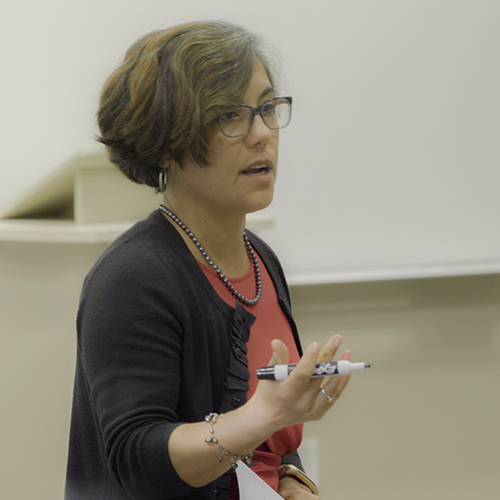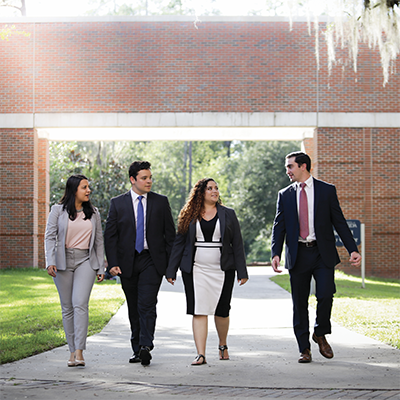
Jiaying Jiang
Assistant Professor of Law
Email:
jiang@law.ufl.edu
Phone:
(352) 273-0625
Expertise
Artificial Intelligence • Blockchain • Central Bank Digital Currency • Cryptocurrency • Financial Regulation • FinTech • Law and Technology •
About
Dr. Jiaying Jiang is an Assistant Professor of Law at the University of Florida Levin College of Law. She focuses her research on policy and regulatory aspects of emerging technologies such as artificial intelligence, FinTech, blockchain technology, cryptocurrencies, and central bank digital currencies. Her scholarship has been published in multiple law reviews and peer-reviewed journals across the United States, China, and Europe. She and her scholarship have also been quoted in the Washington Post, Fortune Magazine, Bloomberg, and other leading industry news outlets.
Before joining the faculty of UF Law in 2022, Dr. Jiang served as a Hauser Global Fellow at the New York University School of Law from 2020 to 2022. In this capacity, she was affiliated with the Information Law Institute and co-directed a project on central bank digital currencies in partnership with the Paul Tsai China Center at Yale Law School. In addition, she has contributed to the RegTrax Initiative at Stanford Law School since 2020 and has served as a peer reviewer for the Stanford Journal of Blockchain Law and Policy. She is also a member of the bar in China and New York.
Education
S.J.D., Emory University School of Law
LL.M., University of Southern California Gould School of Law
LL.B., Shenzhen University School of Law
Courses
Blockchain, Cryptocurrency, and Law
FinTech
Contracts
Scholarship
Law and Technology, Regulatory Impact Assessment, Artificial Intelligence, FinTech, Policies and Regulations on Blockchain and Digital Currencies, Comparative Law
Publications
Articles
- Digital Dollar: Privacy and Transparency Dilemma, 76 UC Law Journal __ (formerly Hastings Law Journal) (forthcoming 2025)
- Privacy Implications of Central Bank Digital Currencies, 54 Seton Hall L. Rev. 69 ( 2023)
- Background and Implications of China’s Central Bank Digital Currency: E-CNY, U. Fla. J.L. & Pub. Pol’y 237 (2023) (invited contribution; with Karman Lucero)
- Technology-Enabled Co-Regulation as a New Regulatory Approach to Blockchain Implementation, 82 U. Pitt. L. Rev. 829 (2022)
- An Ex Post Regulatory Impact Assessment of the U.S. Blockchain Regulatory Regime, 8 J.L. & Cyber Warfare 5 (2021) (peer-reviewed)
- Regulating Blockchain? A Retrospective Assessment of Chinese Blockchain Policies and Regulations, 12 Tsinghua China L. Rev. 313 (2020)
- Blockchain-Based Financial Services and Virtual Currencies: United States, 8 J. of Eur. Consumer & Mkt. L. 251 (2019) (with Larry DiMatteo)
Book Chapters
- Developing Artificially Intelligent Justice in Governance of AI (forthcoming 2025) (with Sidney Thomas and Seth Frye)
- Fungibility, Information Flow, and Privacy, in The Cambridge Handbook of the Law and Policy of NFTS (2024) (with Jamiel Sheikh)
- Disruptive Effects of Legal Tech, in The Cambridge Handbook of Lawyering in the Digital Age (2021) (with Larry DiMatteo & Robert E. Thomas)
- Smart Contracts and Legal Automation, in Smart Contracts (2020) (in Chinese)
Reports, Blogposts, Op-Eds and Others
- China’s Regulatory Initiatives in Regulating Under Uncertainty: Governance Options for Generative AI, Stanford Cyber Policy Center, August 26, 2024
- When It Comes to Artists Using GenAI, Copyright Law Should Protect the Creative Partnership, Tampa Bay Times, August 21, 2024
- Ally or Enemy? When It Comes to the Legal Profession, GPT-4 May Be a Little of Both, Florida Bar News, May 2, 2023
- In the Middle of a Chilling Crypto Winter, U.S. Regulators Need to Turn Up the Heat, The Hill, January 9, 2023
- China’s Digital Yuan Ambitions Raise More Questions Than Answers, South China Morning Post, August 15, 2021
- Background and Implications of China’s Central Bank Digital Currency: E-CNY, Stanford Law School Blogs, April 6, 2021







